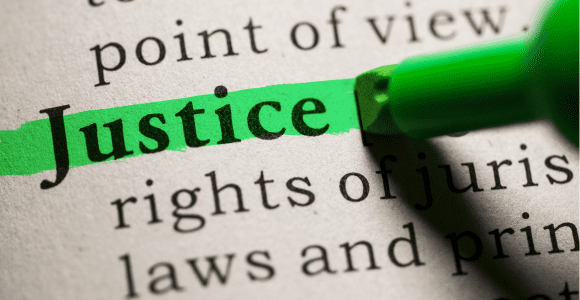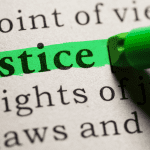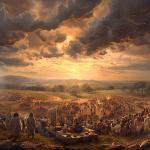
As we continue our consideration of the connection between Jesus following and social justice, remember, Josephus’ writings don’t soften Herod’s role:
Welcome Readers! Please subscribe to Social Jesus Here.
(Read this series from its beginning here.)
“Now some of the Jews thought that the destruction of Herod’s army came from God, and was a very just punishment for what he did against John called the Baptist. For Herod had him killed, although he was a good man and had urged the Jews to exert themselves to virtue, both as to justice toward one another and reverence towards God, and having done so join together in washing. For immersion in water, it was clear to him, could not be used for the forgiveness of sins, but as a sanctification of the body, and only if the soul was already thoroughly purified by right actions. And when others massed about him, for they were very greatly moved by his words, Herod, who feared that such strong influence over the people might carry to a revolt — for they seemed ready to do any thing he should advise — believed it much better to move now than later have it raise a rebellion and engage him in actions he would regret.
And so John, out of Herod’s suspiciousness, was sent in chains to Machaerus, the fort previously mentioned, and there put to death; but it was the opinion of the Jews that out of retribution for John God willed the destruction of the army so as to afflict Herod. (Antiquities 18.5.2 116-119)
According to Josephus, Herod had John arrested and executed because he feared John’s popular influence and feared a possible revolt.
Josephus and the gospels do agree John was one who called his listeners to “justice toward one another and reverence towards God.” Consider how the gospel of Luke describes him:
John answered, “Anyone who has two shirts should share with the one who has none, and anyone who has food should do the same.” Even tax collectors came to be baptized. “Teacher,” they asked, “what should we do?” “Don’t collect any more than you are required to,” he told them. Then some soldiers asked him, “And what should we do?” He replied, “Don’t extort money and don’t accuse people falsely—be content with your pay.” (Luke 3:11-14)
In fact, reverence toward God meant practicing justice toward one another.
The gospels don’t paint Jesus as being wholly different from John, but as so similar in calling the people to practice justice toward one another that some even thought John had been raised from the dead. This is important as we understand how Mark’s gospel characterizes Jesus. Mark’s Jesus is deemed by the people to be “a prophet, like one of the prophets of long ago.” We don’t see this Jesus traveling the countryside trying to get people to say a special prayer so they can go to heaven when they die. Instead he works to establish justice here on Earth. In the wake of John the Baptist’s execution, Jesus calls the people to justice and righteousness toward one another in the same way as the Hebrew prophets of old (see Isaiah 9:7).
We’ll continue with first considering a relevant, small collection of statements from the Hebrew, prophetic, justice tradition and their implications, next.
(Read Part 3)
Are you receiving all of RHM’s free resources each week?
Begin each day being inspired toward love, compassion, justice and action. Free.
Sign up at:
https://renewedheartministries.com/Contact-forms/?form=EmailSignUp
















